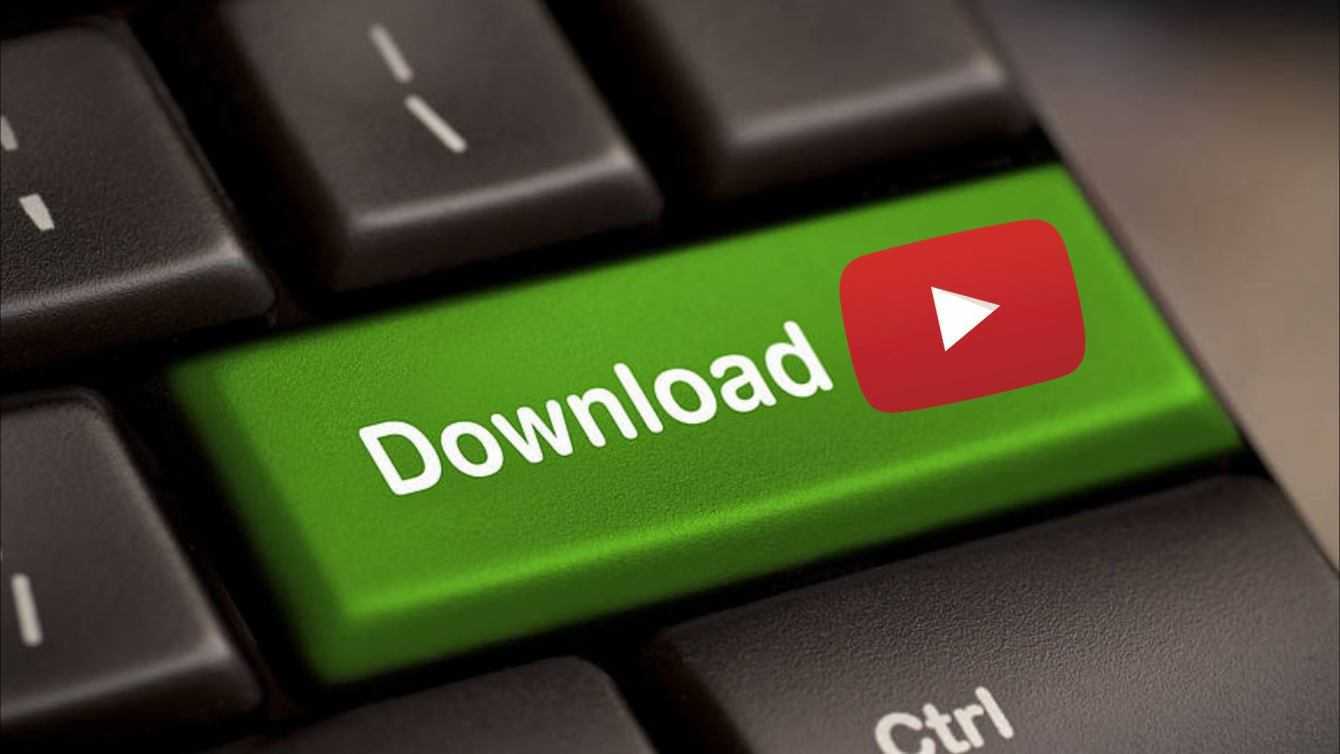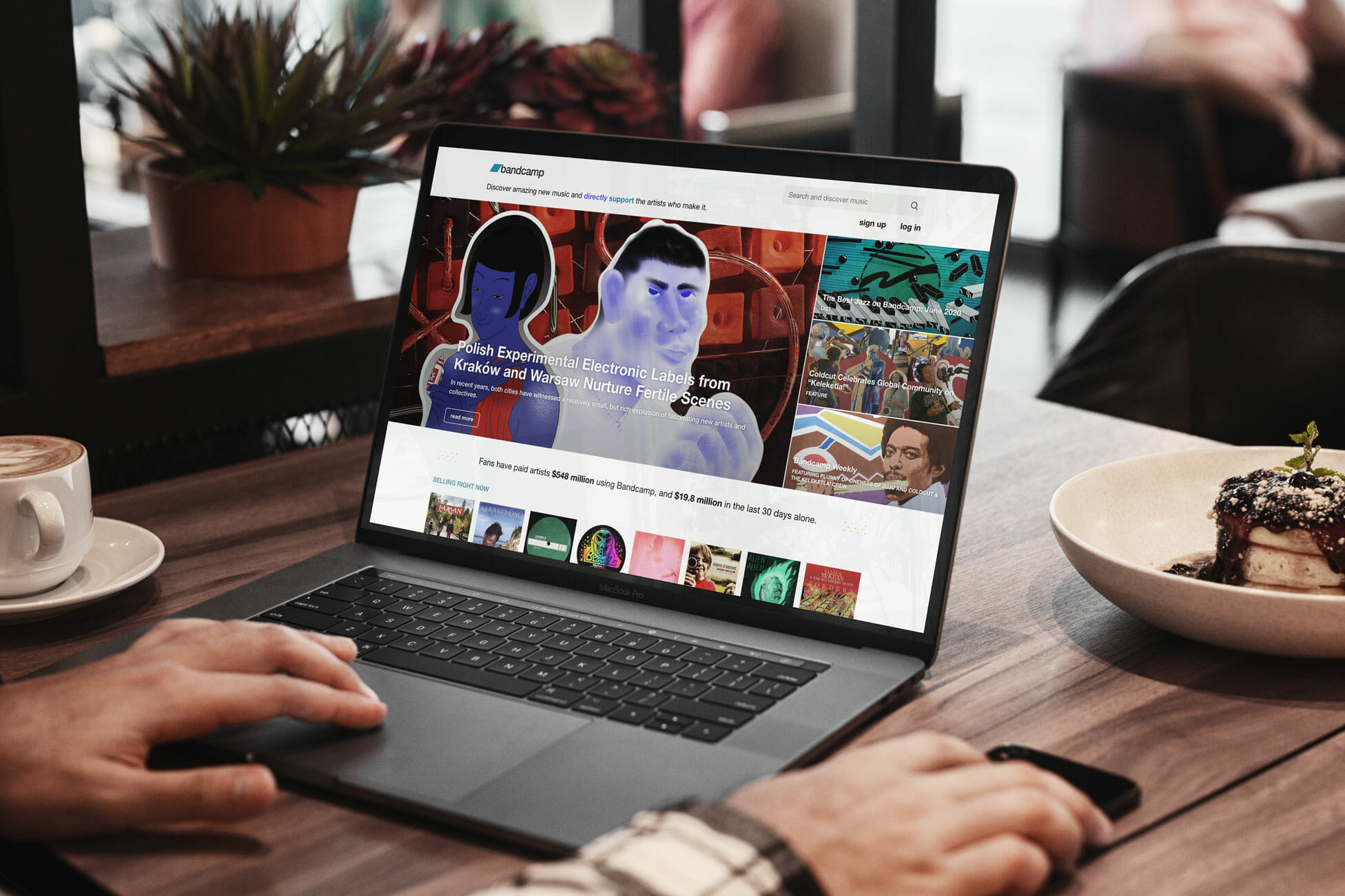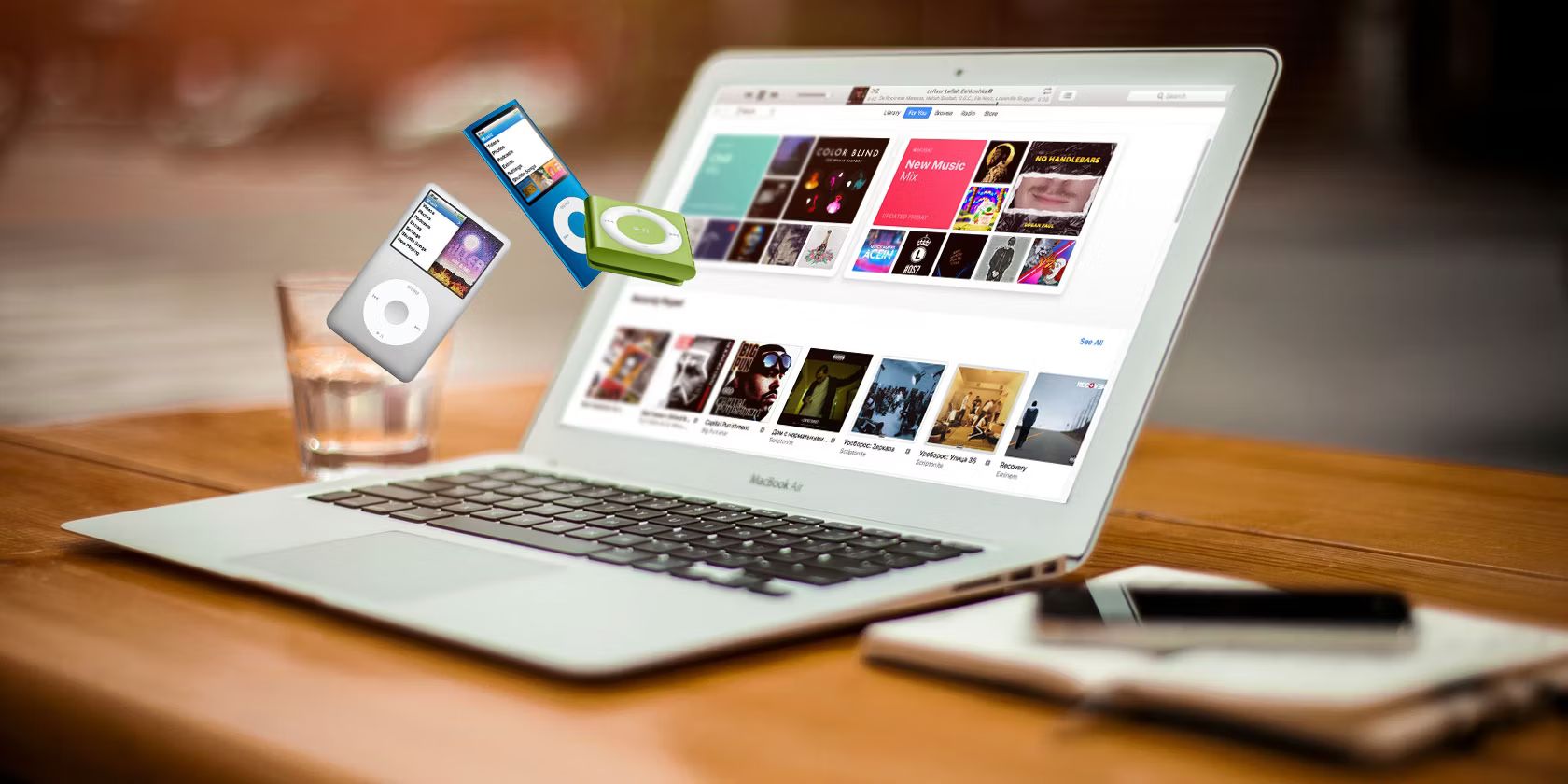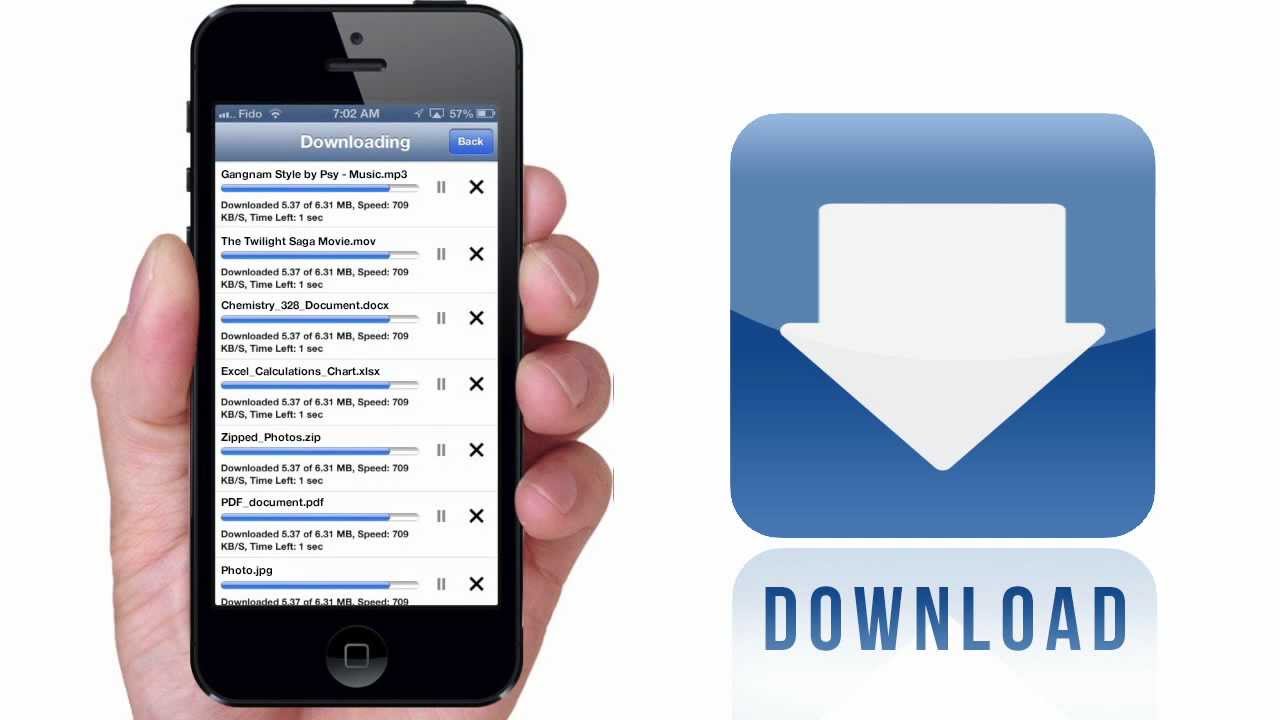Introduction
Downloading music for free to your computer has become a popular practice for many music lovers. It offers the convenience of having your favorite songs readily available offline, without the need for a constant internet connection. While there are legal and ethical considerations to keep in mind when downloading music, there are several methods you can explore to find and download music for free.
It’s important to note that not all methods of downloading music are legal, and it’s crucial to respect copyright laws and support artists by purchasing their music whenever possible. However, there are legal and legitimate ways to find free music that can be downloaded to your computer, and we will explore some of these options in this article.
From using file-sharing programs to streaming and downloading through music apps, there are various avenues to explore when looking to download free music. You can also download music from specific websites, utilize online audio converters, or even extract mp3 files from YouTube videos. For those who prefer exploring independent artists, there are platforms that offer free music from these musicians.
As you navigate through the different options, keep in mind that it is essential to prioritize legality and support the music industry. Downloading copyrighted content without permission violates the rights of artists and can lead to legal consequences. Therefore, always ensure that the music you are downloading is legally available for free distribution or falls under the Creative Commons license.
In the following sections, we will explore some of the methods you can use to download music for free to your computer. While remembering to abide by legal guidelines, you can discover new tracks, revisit old favorites, and expand your music library with ease.
Important note: Legal considerations
Before diving into the various methods of downloading music for free, it’s crucial to understand and acknowledge the legal considerations surrounding this practice. While there are legitimate ways to obtain free music online, there are also many illegal sources and platforms.
When downloading music, it’s important to respect copyright laws and support artists who work hard to create the music we enjoy. Unauthorized downloading of copyrighted material infringes upon the rights of artists, composers, and other stakeholders. This not only negatively impacts the music industry but also undermines the creative efforts of the artists.
To ensure that you are downloading music legally, consider the following guidelines:
- Look for legitimate sources: Explore platforms that offer music specifically under the Creative Commons license or those that provide free music with the permission of artists and labels.
- Avoid piracy: Do not download music from illegal file-sharing programs that enable the distribution of copyrighted content without authorization. These programs often breach copyright laws and can expose you to legal consequences.
- Support artists: Whenever possible, purchase music directly from artists or through legitimate online platforms, supporting them monetarily for their creative efforts. This helps artists continue making the music we love.
- Read the terms and conditions: When downloading music from websites or apps, make sure to review their terms and conditions. Ensure that the content is authorized for free distribution, falls under the Creative Commons license, or is explicitly stated as legally available for download.
- Use reputable sources: Stick to well-known and reputable sources when downloading music. These sources are more likely to adhere to legal guidelines and provide legitimate access to free music.
Remember, downloading music without proper authorization is not only illegal but also harms the artists and the industry as a whole. By being conscious of the legal considerations and making informed choices, you can enjoy the benefits of free music while respecting the rights of the creators.
Option 1: Using a file-sharing program
One of the most common methods of downloading music for free is through file-sharing programs. These programs allow users to share files, including music, with other users across the internet. While some file-sharing programs have gained notoriety for facilitating the exchange of copyrighted material, there are legal uses for them as well.
When using a file-sharing program to download music, it is essential to exercise caution and ensure that you are obtaining and sharing legally available content. Here are some guidelines to follow:
- Use reputable file-sharing programs: Stick to well-known and trusted file-sharing programs that have a track record of abiding by legal guidelines. Examples include BitTorrent and FrostWire.
- Download legally distributed music: Look for music that is explicitly labeled as available for free distribution or falls under the Creative Commons license. Many independent artists share their music through file-sharing platforms with the intention of reaching a wider audience.
- Read user comments and ratings: Before downloading a song or album through a file-sharing program, check the comments and ratings from other users. This can provide insights into the legitimacy and quality of the file.
- Scan files for viruses and malware: Prior to opening or playing any downloaded files, scan them using antivirus software to ensure they are safe. File-sharing programs can sometimes contain malicious files, so it’s important to prioritize the security of your computer.
- Support artists when possible: While file-sharing programs are often associated with free downloads, consider supporting artists by attending their concerts, purchasing their merchandise, or buying their music when you have the means to do so.
Although file-sharing programs can be a source of free music, it is essential to use them responsibly and within the boundaries of the law. Always prioritize the legality of the content you download and be cautious of the files you share with others.
Remember, downloading copyrighted material without proper authorization is illegal and harmful to the artists and the music industry. By using file-sharing programs responsibly and supporting independent artists, you can make the most of this option to find and enjoy free music.
Option 2: Streaming and downloading with music apps
Streaming music has become increasingly popular, offering users access to a vast library of songs without the need to download them directly to their devices. Many music streaming apps also provide the option to download songs for offline listening, making it a convenient way to enjoy music, even when an internet connection is not available.
Here are some key points to consider when using music apps to stream and download music:
- Choose a reputable music app: Opt for well-known, legitimate music streaming apps that have the necessary licensing agreements with artists and labels. Examples include Spotify, Apple Music, Amazon Music, and Google Play Music.
- Explore free ad-supported options: Many music streaming apps offer free versions supported by ads. While these versions may have some limitations and occasional interruptions, they provide access to a wide selection of music at no cost.
- Consider premium subscriptions: If you want to enjoy ad-free streaming and gain additional features, consider subscribing to the premium versions of music apps. These paid subscriptions often include offline downloads, high-quality audio, and personalized recommendations.
- Download music for offline listening: Take advantage of the offline download feature offered by music apps. This allows you to save songs, albums, or playlists to your device for listening without an internet connection. Keep in mind that downloaded music may have certain restrictions, such as time-limited availability or the need to periodically reconnect to the internet to verify your subscription.
- Support artists through streaming: Although streaming music through apps is often free or subscription-based, artists receive royalties based on the number of streams their songs accumulate. By regularly streaming their music, you can support artists financially and help them gain exposure.
Music apps provide a legal and convenient way to stream and download music. They offer a comprehensive catalog of songs from various genres, allowing you to discover new artists and enjoy your favorite tunes with ease. Whether you opt for the free ad-supported version or invest in a premium subscription, music apps provide a seamless and enjoyable music listening experience.
Remember to respect the terms and conditions of the music app you choose and support artists by streaming their music on these platforms.
Option 3: Downloading from websites
Downloadng music from websites is another common method to find free music for your computer. There are numerous websites that offer legal and legitimate free music downloads, allowing you to expand your music library at no cost. Here are some factors to consider when downloading music from websites:
- Choose reputable websites: Stick to well-known and trusted websites that have a good reputation for providing legal and authorized music downloads. Websites like SoundCloud, Jamendo, and Free Music Archive are popular options that offer a wide range of free music.
- Explore genres and categories: Many websites categorize their music library by genre, artist, or mood to help you discover new music that matches your preferences. Take advantage of these filters to find specific songs or explore new genres.
- Read licensing information: Before downloading any music from a website, read the licensing information to ensure that the content is legally available for free distribution. Look for the Creative Commons license or any explicit permission granted by the artist or the website.
- Listen to sample tracks: Some websites provide sample tracks or previews of songs, allowing you to listen before you download. Take advantage of this feature to assess the quality and decide if the music suits your taste.
- Support artists: While downloading free music from websites, consider supporting the artists and creators whenever possible. Many websites provide options to donate directly to the artists or purchase their merchandise, helping them sustain their careers.
Downloading music from websites can be an excellent way to find new and undiscovered artists, as well as expand your music collection with songs from established musicians. By exploring reputable websites and adhering to legal guidelines, you can enjoy a variety of music genres without any cost.
Remember, it’s important to use websites that comply with copyright laws and respect the artists’ rights. Always verify the licensing information and support the artists whose music you download.
Option 4: Utilizing online audio converters
Online audio converters provide a convenient way to convert and download music from various online platforms. They allow you to convert music from platforms like YouTube, SoundCloud, or Vimeo into downloadable audio files, such as MP3 or WAV formats. Here are some key points to consider when utilizing online audio converters:
- Choose reliable online audio converters: Ensure that you select reputable online audio converters that have a good track record and positive user reviews. Some popular options include OnlineVideoConverter, Convert2mp3, and YTMP3.cc.
- Copy the URL of the audio source: Once you’ve found the music you want to convert, copy the URL of the audio source from the respective platform (e.g., YouTube video URL).
- Paste the URL and select the desired format: Go to the chosen online audio converter website and paste the URL into the specified area. Select the desired audio format in which you want to download the music.
- Convert and download the audio file: After selecting the format, initiate the conversion process. Depending on the converter, it may take a few moments to convert the file. Once the conversion is complete, you can download the audio file to your computer.
- Ensure the legality of the source: It’s essential to use online audio converters with content that is legally available for conversion and download. Verify that you have the necessary rights or permissions to convert and download the music.
- Support artists when possible: While online audio converters provide a way to obtain music for free, consider supporting the artists whose music you enjoy by purchasing their songs or attending their concerts. This encourages the continuation of their creative endeavors.
Utilizing online audio converters can be a convenient option to download music from online platforms and convert it into a desired audio format. However, it’s crucial to only use this option for legal and authorized content, ensuring that you respect the rights of artists and copyright holders.
Remember, online audio converters should be used responsibly, and you should always prioritize the legality and availability of the music you convert and download.
Option 5: Downloading from YouTube
YouTube is a treasure trove of music, with countless songs, covers, and live performances available for your listening pleasure. While downloading music directly from YouTube may not be the most traditional method, it is still a popular choice for those looking for free music downloads. Here’s what you need to know about downloading music from YouTube:
- Use reputable YouTube downloader tools: There are several reputable online tools and software that allow you to download music from YouTube. Some popular options include 4K Video Downloader, Y2Mate, and KeepVid.
- Copy the YouTube video URL: Find the YouTube video containing the music you want to download and copy its URL from the address bar of your browser.
- Paste the URL into the downloader tool: Go to the chosen YouTube downloader tool and paste the copied video URL into the designated area.
- Select the desired audio format and quality: In the downloader tool, select the audio format (such as MP3 or WAV) in which you want to download the music. You can also choose the desired audio quality, keeping in mind that higher quality files may take up more storage space on your computer.
- Initiate the download: After selecting the format and quality, start the download process. Depending on the tool and the size of the video, it may take a few moments to download the audio file onto your computer.
- Respect copyright and fair use: It’s important to note that not all YouTube content is available for downloading due to copyright laws. Ensure that you are downloading music that is explicitly labeled as royalty-free, falls under the Creative Commons license, or has the necessary permissions from the creator.
- Support artists and creators: While downloading music from YouTube can be a convenient way to find free tracks, consider supporting the artists and creators whose music you enjoy. Explore their official channels, purchase their albums, or attend their concerts to show your appreciation and contribute to their continued success.
Downloading music from YouTube is a popular method for accessing free music, but it’s essential to do so responsibly and within the boundaries of copyright law. Always confirm the legality of the content you download and respect the rights of the artists and creators.
Remember, YouTube provides an extensive library of music, and downloading music from the platform can be an excellent way to expand your music collection. But it’s crucial to use this option responsibly and respect the rights and permissions associated with the content you download.
Option 6: Exploring free music archives and libraries
There are numerous online platforms that offer extensive collections of free music archives and libraries. These archives are often maintained by institutions, organizations, or individual artists who aim to promote and distribute their music to a broader audience. Here’s what you need to know about exploring free music archives and libraries:
- Research reputable platforms: Look for reputable platforms that provide free music archives and libraries. Some notable examples include the Internet Archive’s Audio Archive, Musopen, and the Free Music Archive.
- Browse through genres and categories: Take advantage of the categorization and tagging systems in these archives to search for music by genre, artist, or specific keywords. This allows you to explore a diverse range of music genres and discover hidden gems.
- Check licensing and permissions: When downloading music from these archives, make sure to check the licensing and permissions associated with the songs. Look for music labeled as Creative Commons-licensed, public domain, or explicitly permitted for free distribution.
- Consider the format and quality: Free music archives may offer downloads in various formats and qualities. Choose the format and quality that best suits your preferences, keeping in mind that higher quality files may require more storage space on your computer.
- Support artists when possible: Even though the music in these free archives is available at no cost, consider supporting the artists and creators behind them. They may offer donation or merchandise options to help sustain their artistic endeavors.
- Follow usage guidelines: Some free music archives may have specific usage guidelines or requirements for using the music, especially for commercial purposes. Make sure to read and comply with the guidelines to ensure you are using the music within the permitted boundaries.
Exploring free music archives and libraries can be an excellent way to discover new artists, genres, and musical styles, all while expanding your music collection without spending a dime. These platforms provide a platform for artists to share their music and for music enthusiasts to find unique and interesting tunes.
Remember to respect the licensing and permissions associated with the music in these archives and support the artists and creators whenever possible to foster a thriving and vibrant music community.
Option 7: Using torrents to download music
Using torrents to download music is another method that some people may consider when searching for free music downloads. Torrents allow users to share and download files through a peer-to-peer network. However, it’s important to note that while torrents themselves are not illegal, downloading copyrighted material without the necessary permissions is against the law. Here’s what you need to know about using torrents to download music:
- Use a reputable torrent client: Choose a reliable torrent client to facilitate your downloads. Some popular options include uTorrent, BitTorrent, and qBittorrent. Ensure that you download the client from a legitimate source and keep it updated.
- Join reputable torrent communities: Look for reputable torrent communities that are known for providing legal and verified content. These communities often have strict rules and guidelines to ensure the safety and legality of the content being shared.
- Download from trusted sources: When using torrents, download from trusted sources that have a good reputation within the community. Look for torrents of songs that are explicitly labeled as authorized for free distribution or those that fall under the Creative Commons license.
- Verify file authenticity: Before downloading a torrent, read the comments and reviews left by other users to verify the authenticity and quality of the file. This can help you avoid downloading files that are mislabeled, contain malware, or are of poor quality.
- Respect copyright and intellectual property: Only download and share music that you are legally authorized to do so. Downloading copyrighted material without proper authorization is illegal and deprives artists of the recognition and compensation they deserve for their creative work.
- Support artists through legal channels: While torrents can provide access to free music, it is important to support artists by purchasing their music through legitimate platforms or attending their concerts. This helps sustain their careers and encourages the creation of more great music.
It’s crucial to approach torrenting with caution and research to ensure you are downloading and sharing music legally. Always prioritize the rights of the artists and respect intellectual property laws to maintain a fair and ethical music community.
Remember, while torrents can be a means to find and download free music, it is imperative to use them responsibly, ensuring that you only download and share content that is legally authorized for distribution.
Option 8: Seeking out free music from independent artists
In addition to well-known mainstream artists, there is a vast world of talented independent musicians who create and share their music for free. Exploring the realm of independent artists can not only introduce you to fresh and unique sounds but also support artists who are pursuing their passions outside the commercial music industry. Here’s how you can seek out free music from independent artists:
- Utilize music discovery platforms: Platforms like Bandcamp, SoundCloud, and ReverbNation are excellent resources for finding independent artists who offer their music for free. These platforms provide a space for artists to showcase their work and allow users to stream or download their songs at no cost.
- Follow independent artists on social media: Many independent artists maintain a presence on social media platforms like Instagram, Twitter, and Facebook. By following them, you can stay updated on their latest releases and any free music they may offer as part of their promotions or appreciation for their fans.
- Explore artist websites and blogs: Independent artists often have their own websites or blogs where they share their music directly with their audience. These platforms may offer free downloads or allow users to stream their music without any restrictions.
- Attend local shows and gigs: Local music scenes are an abundant source of talented independent artists. Attend live shows, local concerts, and open mic nights in your area to discover incredible musicians who may offer their music for free or for a small donation.
- Support independent artists through donations: While independent artists provide their music for free, consider supporting them financially if you enjoy their work. Many artists provide donation options, allowing fans to contribute directly to their creative endeavors.
- Share and spread the word: If you find an independent artist whose music you love, share their songs on social media, create playlists, and recommend their music to your friends. This helps them gain exposure and reach a wider audience.
Seeking out free music from independent artists not only allows you to discover new and exciting music but also gives you the opportunity to directly support and connect with talented individuals who are pursuing their passion for music. It’s a win-win situation that promotes creativity and fosters a vibrant and diverse music community.
Remember to show your appreciation for independent artists by respecting their work, sharing their music, and supporting them through donations or other means whenever possible. It’s a fantastic way to discover hidden musical gems and contribute to the growth of independent music.
Conclusion
When it comes to downloading music for free to your computer, there are several options to explore. While it’s essential to prioritize the legality and ethics of obtaining music, there are legitimate methods to find and enjoy free music.
By using file-sharing programs responsibly, streaming and downloading with music apps, downloading from reputable websites, utilizing online audio converters, downloading from YouTube, exploring free music archives and libraries, using torrents cautiously, and seeking out free music from independent artists, you can access a vast assortment of songs, genres, and artists without spending a dime.
However, throughout the process, it’s crucial to abide by copyright laws, respect the rights of artists and creators, and support the music industry whenever possible. Consider purchasing music from artists, attending their concerts, streaming legally, or donating to independent musicians whose work you enjoy.
Remember, the joy of music comes from the creativity and hard work of artists, who deserve recognition and compensation for their efforts. By making ethical choices and supporting the music community, we can ensure the sustainability and vibrancy of the industry we love.
So go ahead, explore the various options available and find the free music that resonates with you. Whether you choose to use file-sharing programs, streaming apps, websites, converters, YouTube, archives, torrents, or support independent artists, you can expand your music library while respecting the rights of creators and enjoying the beauty of music.

























